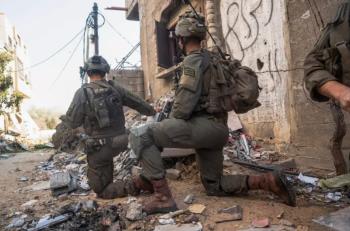Alwaght- In a meeting with the Japanese security and defense officials in Tokyo, the NATO Secretary-General Jens Stoltenberg on Monday highlighted the threats posed to Japan and the East Asia region by North Korea, adding that Pyongyang was a dangerous threat to the whole world.
Reiterating the concerns about the North Korean “provocative and reckless” behavior, the NATO chief also pointed to its long-range missiles program, saying that Pyongyang has emerged as a global threat able to fire ballistic missiles as far as Europe and North America, including the western coast of the US.
Jens Stoltenberg also called on relevant parties to step up political and economic strains on North Korea and add to the existing restrictions.
“NATO strongly supports political, diplomatic, and economic pressure on North Korea and we welcome the strengthening of the sanctions”, he was quoted as saying, adding that these measures, rather than the military confrontation, are viable. The NATO head for some time has been accentuating the pressures as the working way to curb Pyongyang military programs.
These are coming while the North Korean leader Kim jong-un responded to the American President Donald Trump who during his last month United Nations General Assembly speech said that the US could “totally destroy North Korea” if the need arises. Jong-un, also condemning the massive joint US-Japan-South Korea military drills, wrote an open letter last week, addressing the parliaments around the world and calling on the West to change behavior. He went on to urge them to understand the international community's demands for global peace and justice, and also to be highly conscious of the "aggressive" and thoughtless moves of Trump who wants to take the world towards an appalling nuclear tragedy.
The North Korean leader’s letter is widely seen as carrying no aggressive view of the European countries and only asks them to stand in the face of Trump's dangerous threats.
But what is driving NATO to meddle in the US-North Korea row and take anti-Pyongyang stances?
1. Global problems and NATO existence: The Northern Atlantic Treaty Organization was formed in 1949 to counter threats imposed by Soviets on Europe. Before the Cold War end, the military bloc members' number saw a rise, but after breakup of the Soviet Union in the early 1990s, its existence and identity faced questions and so very tangibly lost its practicality.
But this regional security organization has redefined the way security is explained. NATO now enumerates many threats to provide reasons for it to continue living and self-identifying, including terrorism, radical Islamism, rise of monopolistic capitalism and new hegemonic powers like China, and a fear of Russian power revival.
The military bloc now finds it highly crucial to look to the East for survival. The view started almost from 1990 and has gone on to date. In fact, eruption of any crisis and tension across the world, especially in the Far East, West Asia, and Central Asia, gives justification for the NATO intervention, something providing excuse for it to justify its existence. The Pyongyang threat is one of the issues extremely exploited to exhibit the NATO as a still practical military organization.
2. NATO budget and addressing US interests: NATO was founded in a time when Europe was too bankrupt to pay for the bulky organization's high costs. The US, unharmed economically by the devastating war, paid the largest share of foundation. Washington, even to our present day, pays nearly two-thirds of the NATO budget, something giving it the honor of being the leading member, and so according to the realistic logic of power, securing Washington’s interests has been a priority for the NATO. With this in mind, now that North Korea and the US are engaged in a verbal war, the NATO, unavoidably, comes to boost the Washington's global stance against Pyongyang.
3. Curbing Far East's potential risks to the US
Russia is a military rival to the US as China is taking on the country as an economic power. These two powers have constantly been an obsession to Washington that wants to block their global moves and, if possible, their progression. To this end, the Americans are resorting to presence in the East under the excuse of saving the global peace. This is one of their strategies to restrict their eastern rivals. The North Korean crisis provides the US with an excuse for presence in the region. the US set up military bases and deployed air defense systems to South Korea that according to Chinese and Russian officials will damage the balance of power in the region.
Pyongyang missile tests gave the Americans the pretext to dispatch THAAD anti-aircraft systems to South Korea. The system deployment to the Korean Peninsula drew strong objection of Moscow and Beijing. They argue that the radars of the THAAD system will spy on their military activities in the region. in addition the missile system itself provoked more North Korea military tests, including the hydrogen bomb tested in mid-September.
The US does more to ensure direct military presence in the region. It conducts regular military exercises, sends navy vessels to the region, and signs security pacts with regional allies, with the North Korean threat excuse remaining the main drive behind all. In fact, exaggeration of the Pyongyang threat has been considerably in work to boost influence and presence of the Americans in the East Asia. Surfing the waves of regional problems, the US pretends to be taking action to protect allies from the North’s dangers but in reality, Washington intends to check Beijing and Moscow and get a toehold in the region. NATO's coming on board, on the other side, can effectively help Washington solidify foothold and pursue goals.



























